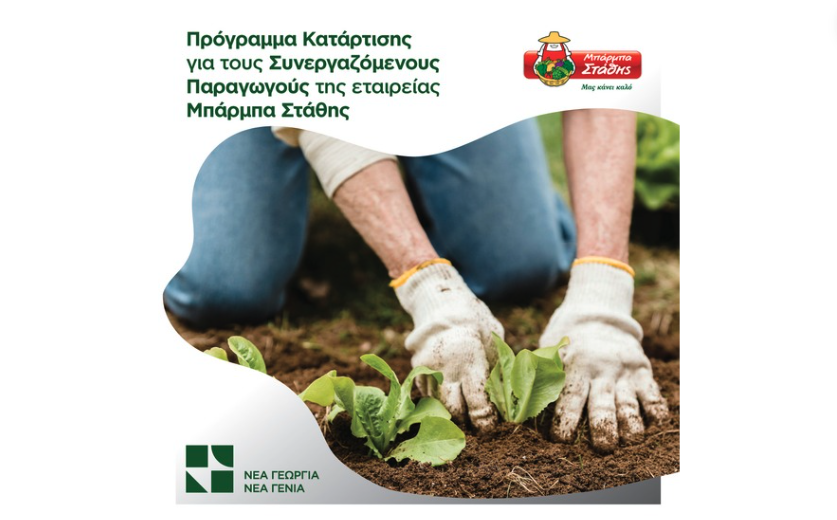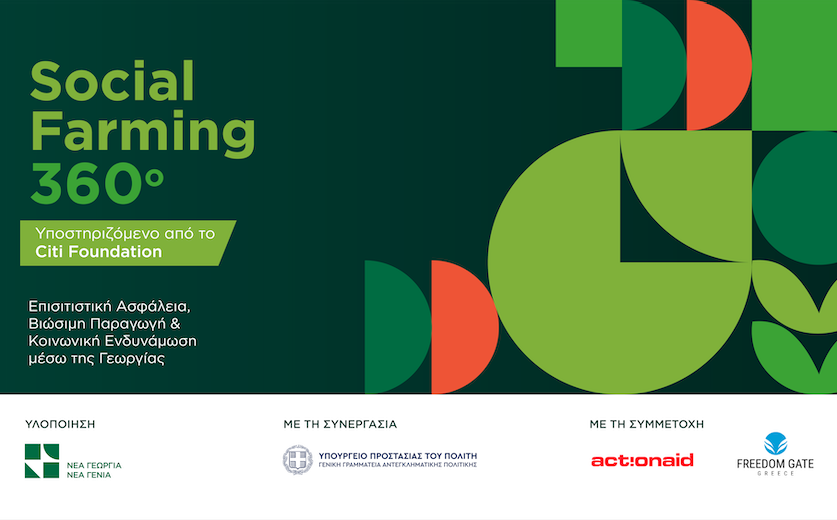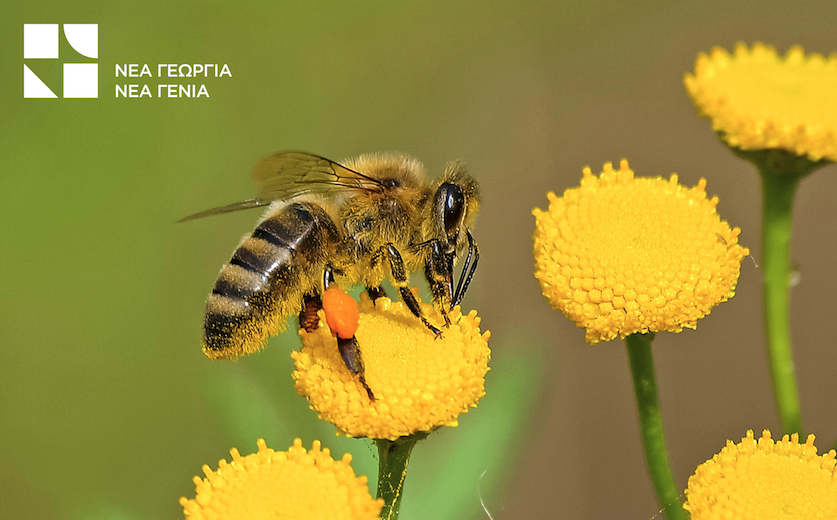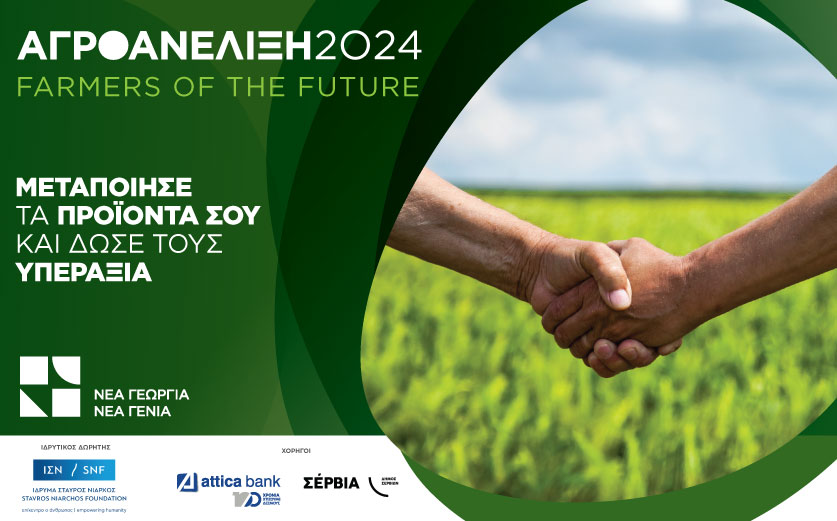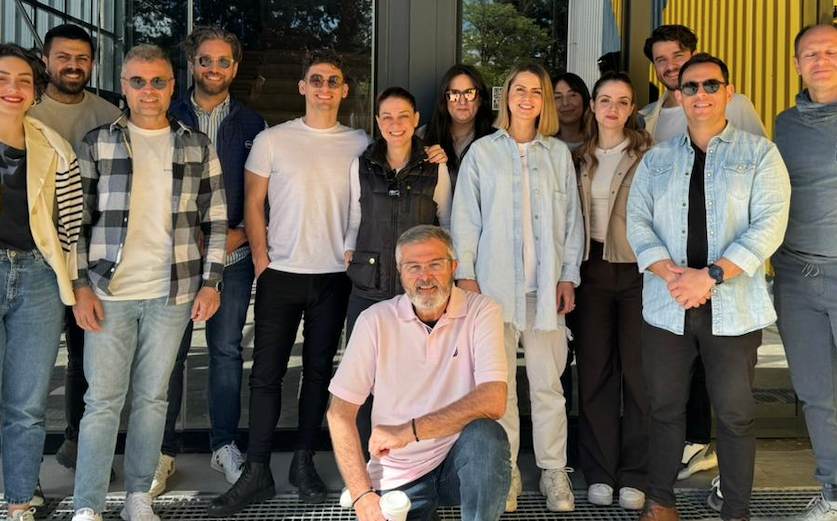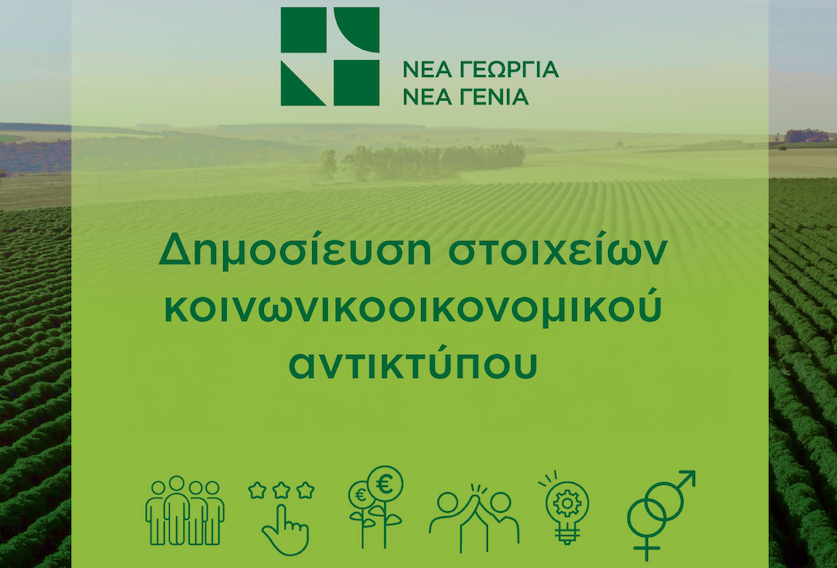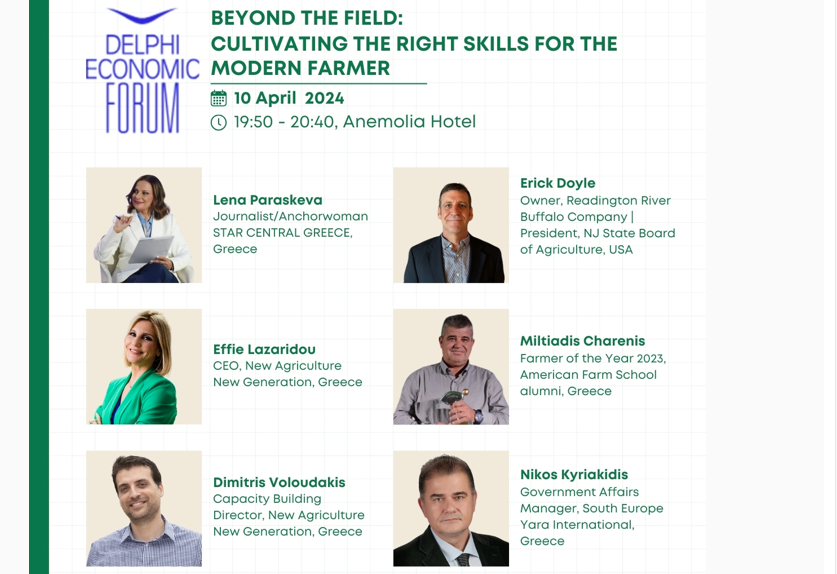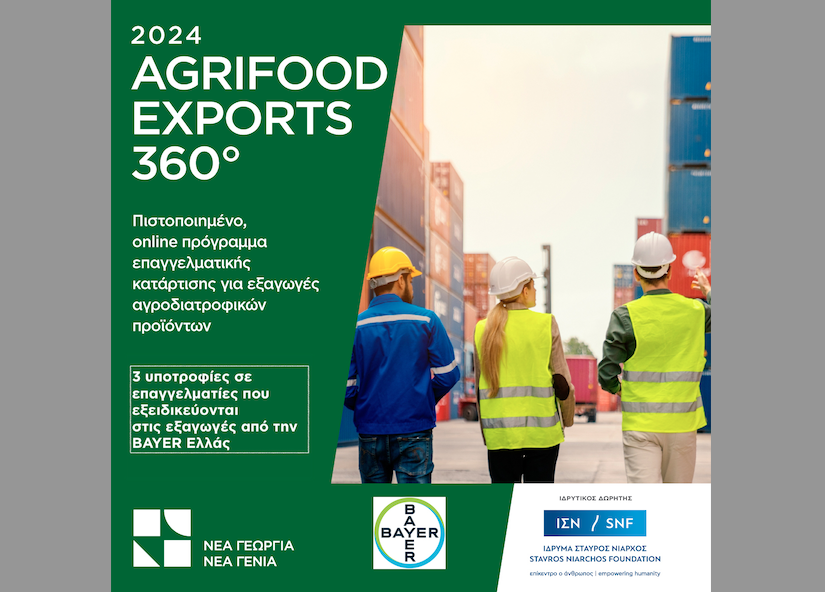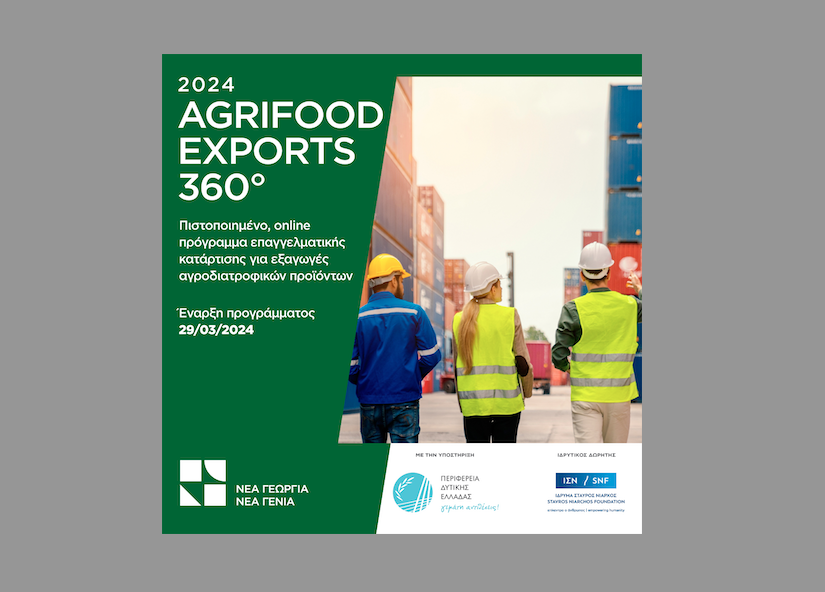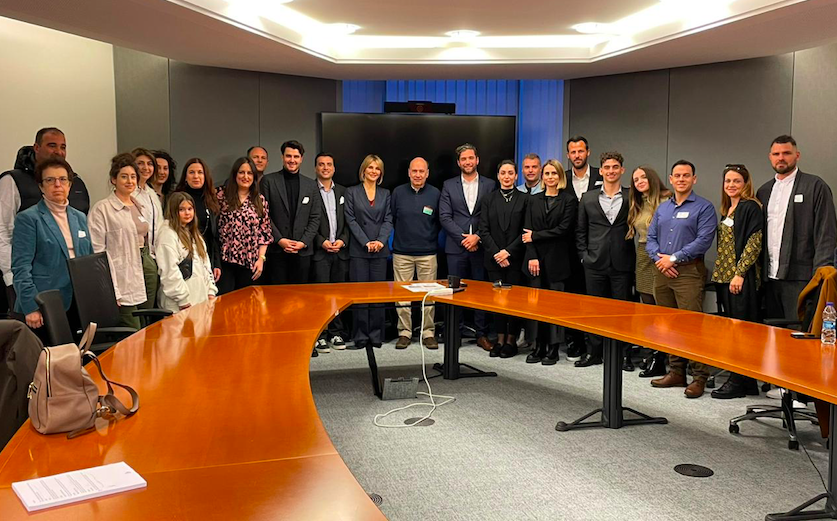New Agriculture New Generation announces the launch of the “Social Farming 360” program, funded and supported by the Citi Foundation, in direct collaboration with the General Secretariat for Anti-Crime Policy of the Ministry of Citizen Protection, and with the participation of ActionAid and Pylh Eleftherias. The program aims to enhance food security, develop skills in vulnerable social groups, and develop new social farming products.
Food security is one of the top global challenges, with more than 770 million people suffering from some form of malnutrition. In Greece, sustainable food production, especially at a time when agricultural production is severely affected by phenomena resulting from the climate crisis, becomes a primary need.
With secured funding from the Citi Foundation and in close collaboration with the General Secretariat for Anti-Crime Policy, “Social Farming 360” is developed into a multifaceted, practical, two-year program. The program supports sustainable food production and distribution in correctional facilities in Greece, the training of inmates, the creation of employment opportunities in the agricultural sector, the optimization of existing crops such as olive farming and medicinal and aromatic plants, and the upgrading of the agricultural technical knowledge of correctional facility staff. Additionally, the program includes the development of soft skills and skills for professional integration and reintegration, and psychosocial training in collaboration with ActionAid and Pylh Eleftherias.
The General Secretariat for Anti-Crime Policy of the Ministry of Citizen Protection supports the program by providing four agricultural correctional facilities: Agia Chania, Tiryntha Argolida, Kassavetia Volos, and Kassandra Halkidiki, and two special detention centers: Women’s Detention Center and the Eleonas Thiva Drug Rehabilitation Center for Inmates.
“Social Farming 360” significantly contributes to transforming agricultural activities in Greek correctional facilities and actively supports both the reintegration of inmates and food security in the detention centers and the communities where they are located.
It is worth noting that New Agriculture New Generation is one of 50 organizations worldwide to receive $500,000 donations from the Citi Foundation to support programs focusing on four key areas: food access, food availability, economic affordability, and community resilience as part of the first Citi Foundation Global Innovation Challenge. This is a new $25 million holistic funding model to identify and provide philanthropic support to NGOs developing innovative solutions to the social and economic challenges facing low-income communities.
Citi Foundation’s – Voices from the Field
Emilios Kyriakou, CEO of Citi Greece, Cyprus, Malta:
“Safe, healthy, and nutritious food in adequate quantities is fundamental to everyone’s well-being, and continuous effort and collaboration at all levels are required to achieve this. There is an interconnection between environmental, social, political, and economic factors that exacerbate this difficult reality. We hope that the Citi Foundation’s new initiative ‘Global Innovation Challenge-food security’ will contribute to solving the problem. I wish success to the ‘Social Farming 360’ program of New Agriculture New Generation and to our volunteers who are eager to help.”
Effie Lazaridou, CEO of New Agriculture New Generation:
“We are proud to have the opportunity to contribute to transforming agricultural activities in agricultural prisons and to actively support both the reintegration of inmates and food security in the detention centers and the communities where they are based. The trust of the Citi Foundation honors us and motivates us even more to work, along with the General Secretariat for Anti-Crime Policy, towards sustainable food production, especially at a time when the climate crisis significantly affects agricultural productivity.”
Dimitra Lygoura, General Secretary for Anti-Crime Policy:
“With trust in the value of the ‘Social Farming 360’ program, I express my support for this initiative. The program is a valuable opportunity for the reintegration of vulnerable groups into our society and the creation of a more sustainable and inclusive social environment. With our participation and support for this program, we seek development that focuses on the individual and their place in our society. I congratulate the New Agriculture New Generation organization and the Citi Foundation for their initiative, and I am confident that this collaboration will have positive results on multiple levels.”
Makis Drakopoulos, Director of Programs and Institutional Funding, ActionAid:
“Through this program, which is based on ActionAid’s expertise in the work integration of people at risk of social exclusion, our goal is to help inmates develop their skills and gain the confidence to achieve their professional reintegration. We are happy and proud of the expansion of our programs in the field of education and reintegration of inmates in correctional facilities.”
Tina Annet Torronen, President, Pylh Eleftherias:
“Pylh Eleftherias, with many years of experience in implementing psychosocial support programs in correctional facilities, will contribute to the success of the program by enhancing the psychosocial framework and reintegration prospects of the inmates.”
